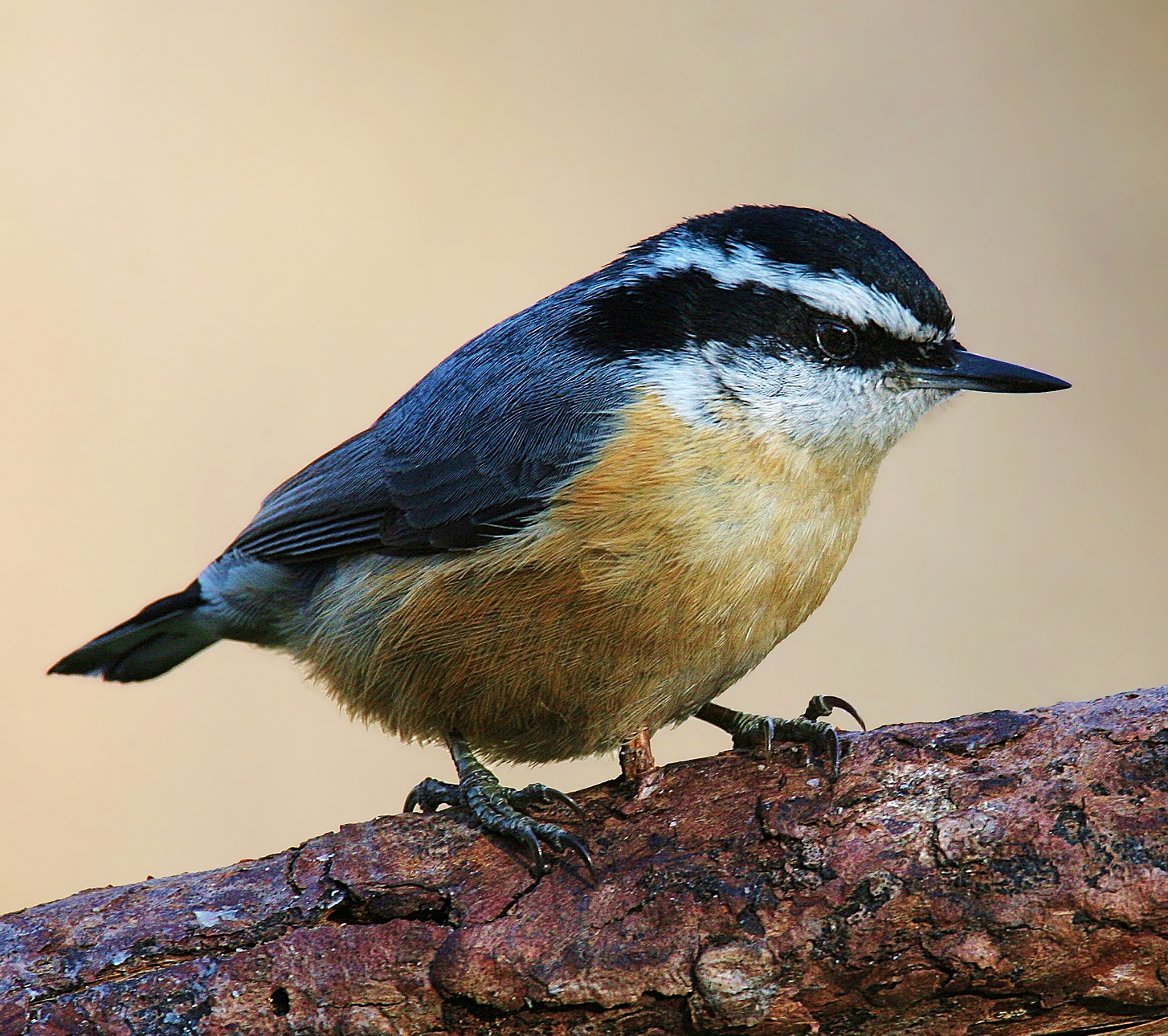 |
| Photo by Wolfgang Wander (Wikipedia) |
Common name:
red-breasted nuthatch (en); trepadeira-azul-do-Canadá (pt); sittelle à poitrine rousse (fr); trepador canadiense (es); Kanadakleiber (de)
Taxonomy:
Order Passeriformes
Family Sittidae
Range:
These birds are found throughout southern and north-western Canada as well as in the western and north-eastern United States. Some population migrate south to winter throughout the United States and sometimes down to northern Mexico.
Size:
They are 10-12 cm long and have a wingspan of 18-22 cm. They weigh 8-13 g.
Habitat:
Red-breasted nuthatches are mostly found in dense coniferous forests, such as balsam fir, spruce, pine, hemlock, larch, and western red cedar. They can also be found in mixed coniferous-deciduous forests and along riverine forests. During irruptive winters they may even be found in orchards, scrubs, parks, plantations, and shade trees. This species is present from sea level up to an altitude of 3.100 m.
Diet:
During the spring and summer, these birds eat insects and other arthropods, namely beetles, caterpillars, spiders, ants, and earwigs. In autumn and winter they mostly eat conifer seed. During outbreaks of the spruce budworm this becomes an important prey item.
Breeding:
Red-breasted nuthatches breed in May-July. They are monogamous and nest in holes in trees, sometimes using old woodpecker nests or nest boxes. The inside of the nest is lined with grasses, mosses, rootlets, shredded bark, and plant fibers. The female lays 2-8 white or pinkish eggs with brown speckles, which she incubates alone for 12-13 days. The chicks are fed by both parents and fledge 18-21 days after hatching. Each pair raises a single brood per year.
Conservation:
IUCN status – LC (Least concern)
This species has a very large breeding range and the global population is estimated at 18 million individuals. The population has undergone a large increase of 24% per decade over the last 4 decades.







